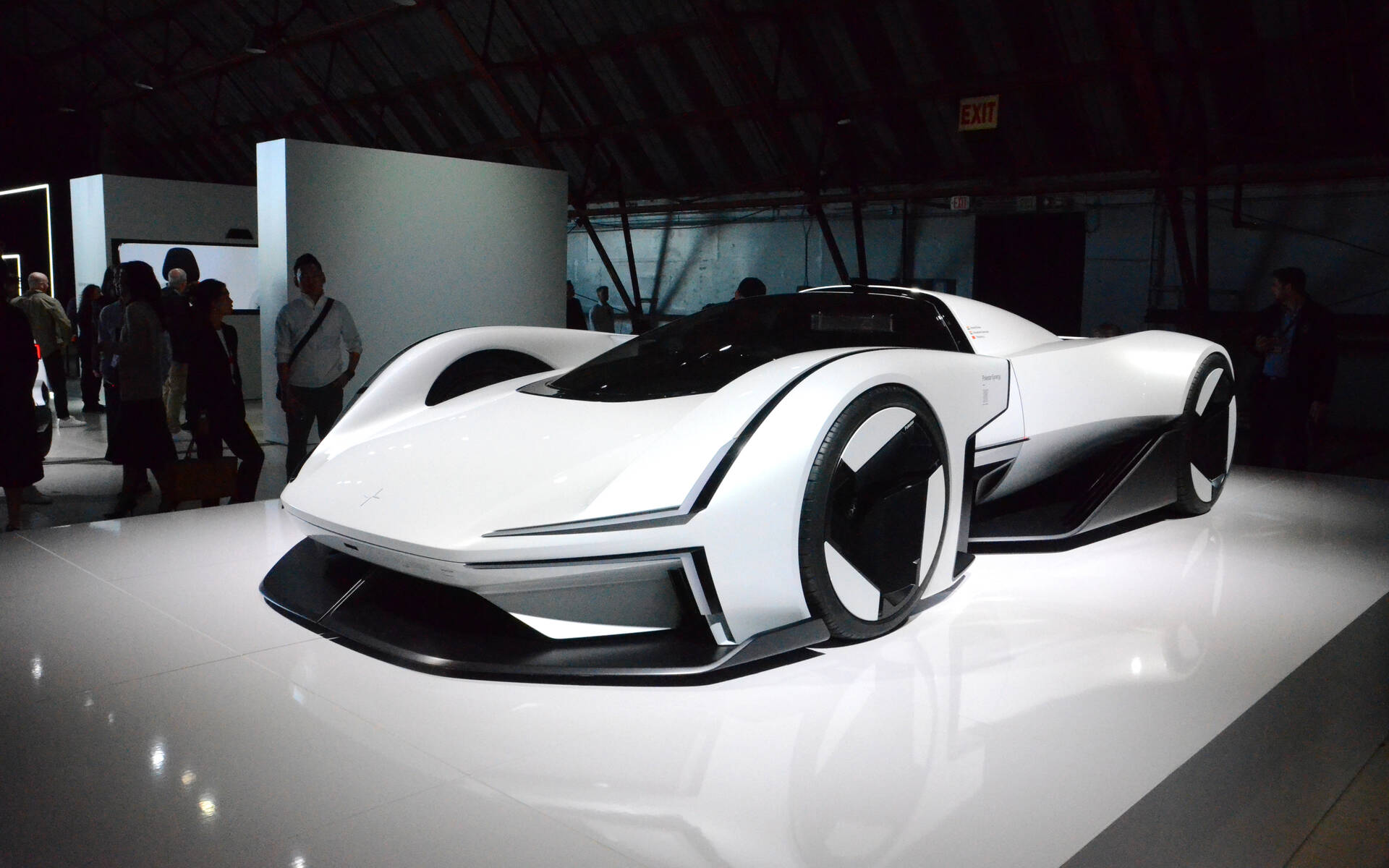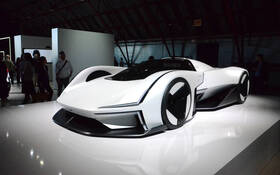Polestar Day: The EV Brand’s Future Looks Bright
Santa Monica, California—Polestar this week invited the media inside a hangar near Los Angeles for a closer look at its two upcoming models, the hugely important Polestar 3 and Polestar 4 crossovers. A small number of concepts were also on hand, and some of the Swedish company’s partners came to present key innovations that will launch within the next few years.
Polestar may still be relatively new to the market, but it’s about to enter the second phase of its master plan looking to build on the success of the Polestar 2 fastback sedan. The limited-production Polestar 1 hybrid coupe that came before that did little for the brand in the grand scheme of things.
- Also: Polestar 3 Designer Has Some Harsh Words About Competitors
- Also: Polestar 3 Makes Canadian Debut in Vancouver
While the 2 is based on the same platform as the Volvo C40 Recharge and XC40 Recharge, the all-new Polestar 3 and Polestar 4 boast unique underpinnings, the latter shaped as a crossover coupe slotting between the 2 and 3 in terms of size and pricing.
Polestar 3: The Much Anticipated SUV
During this inaugural Polestar Day, executives told us that the Polestar 3 was currently undergoing final testing at various locations around the globe. This highly anticipated model, which is taller and roomier, is expected to significantly boost sales.
Production will start in the first quarter of 2024 in China and a bit later in South Carolina for the North American market. The first deliveries are scheduled for the spring.

Polestar 4: Increased Production Capacity
The company had some good news for people worrying about supply chain issues. In addition to the Chinese plant in Hangzhou Bay where the Polestar 4 is already assembled, production will take place in Busan, South Korea starting in the second half of 2025 thanks to a deal with Renault Korea Motors (RKM).
This is where units for both the Korean and North American markets will be manufactured. The factory in Hangzhou Bay will solely focus on the world’s biggest EV market.

V2G Trials
Following the static presentation of the two crossovers and a bunch of stunning concepts, Polestar made an announcement about a large-scale V2G (vehicle-to-grid) project in Gothenburg, Sweden. Through a collaboration with many stakeholders in the electricity grid sector, the company aims to find new ways to redirect energy back to the grid. The two-year trial will start in early 2024.
At the same time, Polestar is forming a collaboration with the California Energy Commission and the independent, non-profit energy R&D institute EPRI on a pre-study to create a roadmap for the implementation of V2G services in California. The Golden State is an EV paradise that Polestar wants to exploit to the fullest. Research will be conducted from December 2023 to October 2024.

Meanwhile, the company is developing a Virtual Power Plant (VPP) that links all participating Polestar 3 cars connected to the grid. The cloud-based VPP calculates the collective capacity of connected batteries and initiates charging or discharging based on grid demand and battery longevity optimization.
According to Patty Monahan, a commissioner on the California Energy Commission, this will allow car owners to both contribute to the energy transition and monetize their EV while it’s parked, without any intervention. How much money owners could make is still unclear.

160 km of Range in 5 Minutes
Slow charging times are one of the top reasons why many people hesitate to buy an EV now and prefer to wait until much faster-charging models hit the road.
One of the most interesting announcements made during Polestar Day in California was a new Extreme Fast Charging (XFC) technology developed with the help of StoreDot, a battery research startup from Israel that made a name for itself with e-scooters that can be charged in just five cinq minutes.
What’s great about this tech using silicon cells is that consumers don’t have to wait for the next big battery breakthrough. It can simply and easily be integrated to today’s EVs with no need for major modifications. Sometime in 2024, Polestar and StoreDot will demonstrate the technology’s potential in a prototype of the upcoming Polestar 5 performance sedan.












